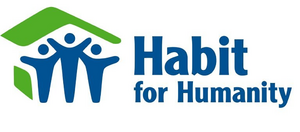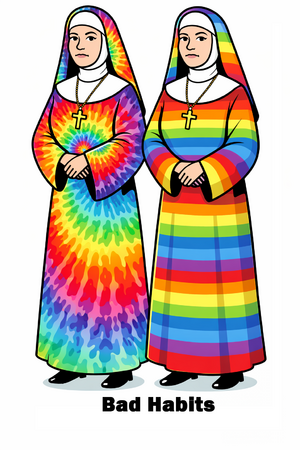Home
Welcome to the first issue of Reasoned Voice for 2026.
One year ago, MLK Day 2025, I launched this website. I had a general idea of where I wanted to go, and started along a path. Many detours and rewrites, I am still finding my way. One of those detours was a hiatus to help work on my wife's (successful!) run for City Council here in Lowell, MA. Although I had a general idea of elections, this was my first time getting involved at this level of detail. A good reminder of the importance of experience in addition to theory. But also a great reminder of the importance of also stepping back, to see both the forest and the trees. To practice "convergent and divergent thinking", a key technique in critical thinking and problem solving. Observations of the same exact situation can look very different from close up and far away. (A good exercise is to look at your location in Google Earth from space and then zoom in on the detail...and vice versa). And how experience in one area can yield insights into other, often unrelated areas.
Which leads me to this Issue's topic: Habit.
The Importance of Habit Issue 5
Objectivity Issue 4
Thinking in Stories Issue 3
Fear & Anger Issue 2
Polarization Issue 1
Intro
The Importance of Habit
We don't always like to admit it, but humans are creatures of habit. Habit influences our decisions as much as or more than rational thought and reason. This isn't a flaw, it is part of the evolutionary biology that has helped humans survive and thrive. While habits can be detrimental (e.g., addictions). more often than not habit allows us to make reasonable decisions quickly without a lot of conscious thought...which allows us to apply our attention to other decisions. Especially in this information age, our conscious brains do not have enough capacity to deal with all of the issues competing for mindshare. Habit relies on the fact that if something worked well enough for us once or twice, it is likely to work for us again. That makes sense. Habits are efficient.
We adopt habits for a variety of reasons, but one of the most common is because others around us, others we respect, follow the habit. Again, there is some rational evolutionary reason for this: if it works for others we respect, it is likely to work for us as well. We may adopt the habits or our parents, our friends, "influencers" or even a popular TV character.
Examples of habits are eating breakfast each day, putting on a coat in winter, going to work, eating turkey on Thanksgiving, rooting for the home team, attending church. When habits are shared with others, and done as a group activity, we call them "traditions". Another evolutionary aspect of habit is our defense of habits. Breaking with tradition/habit is difficult. When challenged, we defend our habits. We can give good reasons why they exist and even give reasons why others should adopt our habits.
When we defend good habits, we call them justifications. When others defend what we perceive as bad habits, we call them excuses. In most cases, our minds are made up and we are advocating for/against a habit....we do not typically give them the mental scrutiny or objectivity we would if we started with a blank slate. We also often associate habits with pleasant memories. It isn't the turkey itself that makes Thanksgiving, it is the associated memories that are conjured up. Turkey and stuffing in July do not conjure up the same associations. Often we remember an "origin story," the first time something became a habit.
Breaking habits is difficult. Our subconscious tends to treat our habits as "established fact." Habits are who we are, what we do, just like our names. We don't easily change our names, nor our habits. When habits are especially hard to break, we label them "addictions." Interestingly, for many habits, the opposite can also be a habit. For example, a non-smoker can adopt the healthy habit of not smoking.
Voting as Habit
Ask most regular voters why they vote and they will give a very rational reason as to why people should vote. And they will often also recall an "origin story"... the first time they voted. It may be having gone to the polls with a parent, or as someone who was formerly not allowed to vote. And that habit/tradition continues, reinforced by that memory.
For example, if I reflect honestly as to why I vote, my truest reason is simply because "I always vote. " In other words, it is my habit to vote. Why would I break that habit? When I think about the origin of my habit, I recall turning 18 just before a Presidential primary and the pride I felt in being able to vote. It wasn't as much about being able to participate in democracy as it was a coming of age, to be able to feel pride in being able to do something only adults get to do, to do something many of my classmates couldn't (many hadn't turned 18 yet or hadn't registered to vote). Not particularly noble, but nevertheless I have voted in most every election since and I take it seriously.
Having talked to other voters, I would venture to say that most regular voters have an origin story, a reason why it is now their habit. But they vote, as I do, simply as habit. We vote even when it is clear our vote won't make a difference, when someone is running unopposed, when the weather is bad, or when we would be happy with either candidate. It is just something we do. Although we can also give some very convincing justifications as to why everyone should vote.
Not-Voting as Habit
Not-voting is also a habit. We don't like to admit it, but there are actually valid reasons/excuses for someone not to vote. It may be inconvenient, votes seldom matter, they are voting for a person who is not going to vote 100% their way and may disappoint them on some issue. And in this day and age, a person might even make enemies or get ridiculed on the Internet for supporting a candidate different than others. There is a lot of anxiety that comes with paying attention to the news and being informed! If their group of friends don't vote, and they never voted, changing that habit of not-voting is quite difficult.
The point here is that even though the reasons why one should vote far outweigh the reasons for not voting, what we should do is not usually enough to break habits. People shouldn't smoke, gamble, get angry, overeat...but that doesn't overcome habit.
Complaining about Non-Voters as Habit
We have lots of habits. Many that are quite minor and we seldom think of as habits. For example, on the subject of voting, one habit among voters is complaining about people who don't vote. This seems to be a point of conversation every election cycle. Talk show hosts will invariably dedicate airtime to being disappointed that more people don't vote. Another habit is to make statements like "if you don't vote, you don't have the right to complain." Perhaps that is as it should be, but there is no evidence to support that being the case. In reality, non-voters still complain, and have the same ability to post their opinions in social media or call into talk shows as their friends who vote. I would venture to say that complaining about people not voting seems to be as fundamental a habit of democracies than actually voting. So complainers, feel justified, you are contributing to democracy! (A good example of how one can justify a bad habit.)
The Takeaway
Voting was used here only as an example. There are many other examples where habit overrides what should be true. Habits play an important role in human behavior. The reality is that habits are hard to break--and well-reasoned, persuasive arguments are often not enough. That may not be the way it should be, but that is the way it often is. And recognizing that fact may help us come up with some practical solutions to complex problems in our polarized world, and help us be more accepting of others.
"Every great thinker is someone else's moron." - Umberto Eco ... Foucault's Pendulum.
"Don't let perfect be the enemy of good." - Voltaire (and others)



